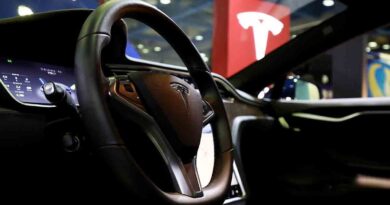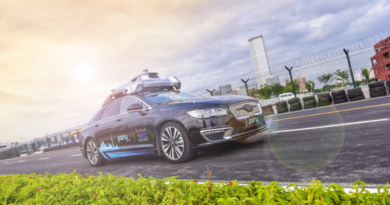Industry, safety, union officials urge federal action on AVs
WASHINGTON — Officials from groups representing the autonomous vehicle industry, as well as highway safety advocates and union workers, are urging Congress to act on legislation for self-driving cars and trucks.
The U.S. House Transportation and Infrastructure Committee’s Subcommittee on Highways and Transit will hear testimony Wednesday from self-driving startup Aurora, Advocates for Highway and Auto Safety, the Autonomous Vehicle Industry Association, labor unions and other experts.
The hearing — titled “The Road Ahead for Automated Vehicles” — follows failed attempts by Congress to pass AV legislation and comes at a time when traffic deaths are increasing at a record pace.
The Autonomous Vehicle Industry Association, formerly known as the Self-Driving Coalition for Safer Streets, argued in written testimony that AVs will make U.S. roads safer, improve transportation equity and create jobs but that federal inaction risks America’s leadership role in the technology.
The association’s members include Ford Motor Co., Cruise, Lyft, Uber, Volvo Cars and Waymo.
Ariel Wolf, general counsel for the association, urged policymakers to work with the industry to establish a national policy framework for the safe deployment of AVs.
“As other countries take steps to realize these benefits, the U.S. should not take its leadership position for granted,” Wolf’s testimony reads. “Through a national framework that enhances consumer trust and maximizes AV deployment, we can seize this momentous opportunity.”
Nat Beuse, Aurora’s vice president of safety, said federal leadership supporting the development of AV technology in the U.S. is “critical.”
“Creating a level playing field where the rules are clear and conducive to realizing the benefits for safety, mobility and efficiency for AV technology is a necessary role of government,” Beuse’s written testimony reads.
While the driverless tech company supports NHTSA’s efforts to modernize Federal Motor Vehicle Safety Standards for AVs and related technologies, Beuse said Congress should pass legislation “confirming the federal government maintains its regulatory authority over the design, construction and performance of AVs.”
That includes providing guidance to ensure uniform rules of the road and autonomous operational permitting requirements across state jurisdictions.
Advocates for Highway and Auto Safety, a consortium of consumer, medical, public health and safety groups as well as insurance companies, argued “the lack of comprehensive federal performance standards, strong government oversight, adequate consumer information and effective industry accountability” endangers road users as AVs are tested in public.
“These inadequacies also have led to a great deal of confusion about AVs, advanced driver-assistance systems and partial automation convenience features,” Advocates President Cathy Chase argues in her written testimony. “In turn, the confusion has led to misuse and over-reliance on some technologies which have resulted in preventable fatalities and injuries.”
Chase’s group previously urged lawmakers to follow an outline for AV legislation released in 2020 that prioritizes safety, equity, accessibility and sustainability.
John Samuelsen, international president of AFL-CIO affiliate Transport Workers Union of America, argued the group’s members — which include employees of the airline, transit and utilities sectors — are “most at risk of job loss and displacement” if AVs are deployed “haphazardly or in ways that undermine workers’ interests,” according to his written testimony.
Samuelsen said the union would endorse legislation that regulates the AV industry while holding those new technologies to high safety standards and ensuring the industry creates union jobs and supports U.S. workers.
“As this committee considers legislation that addresses how and if AVs are integrated into our transportation system, the decisions you make will have profound effects on the frontline employees, passengers and motorists, and on the future of mobility across America,” his written testimony reads.
Samuelsen called for more active involvement and oversight by the U.S. Department of Transportation to ensure AVs are safely deployed and appropriately regulated.
In January, the Transportation Department unveiled six guiding principles to help set a strategy for its approach to innovation in transportation, especially as companies deploy more advanced automated technology on vehicles and continue to develop and test AVs.
The department also set a broad national strategy aimed at significantly reducing serious and fatal injuries on U.S. roads. The effort includes a set of actions designed to make vehicles safer, such as mandating automatic emergency braking and pedestrian automatic emergency braking on new passenger vehicles.
As of yet, there is no federal law regulating AVs.
Ohio Republican Rep. Bob Latta renewed efforts in 2020 to push legislation through Congress by reintroducing the Self Drive Act, which establishes a federal outline to ensure the safety of AVs while exempting certain national safety standards and preempting states from enacting laws regarding these vehicles.
House Republicans introduced the bill in 2017, and it was passed unanimously by the House. A complementary bill — the AV Start Act — was later introduced in the Senate. Both bills stalled there in 2018.
Source : Autonews.com




